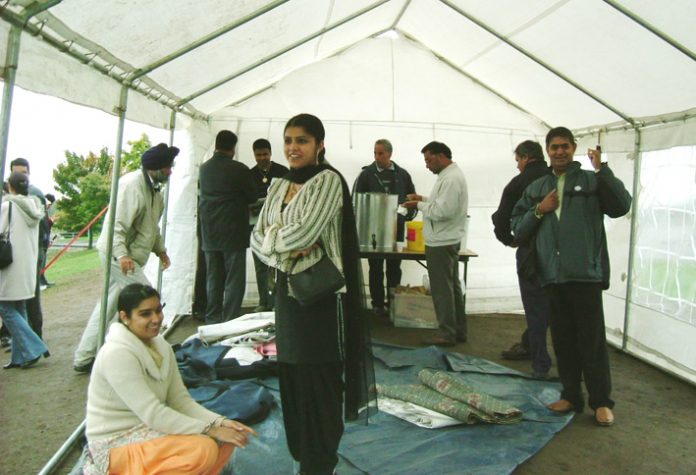
School support staff work the most unpaid overtime behind council chief officers, reveals a new survey published last Friday.
The MORI survey carried out for public sector union UNISON covering all areas of local government, found that nearly 40 per cent of school support staff were doing up to four hours unpaid extra work each week, and a further 15 per cent were doing between four and ten hours extra work.
The survey also shows that more than a third of nursery nurses and teaching assistants are doing up to four hours unpaid work each week, and more than one in five is working over four.
These groups are among those most unhappy with their pay and feel their workload and stress levels have increased in the past year, the figures show.
‘We have known for many years that school staff do a substantial amount of unpaid overtime,’ said UNISON national secretary for education Christina McAnea.
‘When you take into account that many of these staff work part time and are low paid, their unpaid work constitutes a huge percentage of their working week and pay.
‘Quite frankly, the goodwill of support staff is being exploited by schools and local authorities who depend on their commitment to get the job done without paying them for the hours they actually work.
‘These results confirm our view that workforce reforms are slow to deliver tangible benefits to school support staff.
‘It is becoming increasingly obvious that school staff pay and conditions need to be reviewed and overhauled.’
Sustaining Communities: Taking the Strain, commissioned by UNISON and carried out by MORI, surveyed 10,000 UNISON members working in local government.
Over half of nursery staff said they worked overtime, 34 per cent working more than four hours’ overtime per week, with 23 per cent saying they worked between four and 10 hours.
Teaching assistants were also likely to be dissatisfied with their pay, the survey suggested, with 72 per cent saying they did not believe they were paid fairly for the work they did.
A teaching assistant on the highest level (level four) can earn up to an average pro-rata salary of £23,313 per year, but many are paid on a termly basis only, Unison says.
A teaching assistant on the lowest grade could earn a pro-rata salary of as little as £10,560 per annum.
The National Union of Teachers highlighted the survey on its website.
The NUT said the survey showed: ‘Worryingly, 20 per cent claim that they are regularly made to work between four and ten hours extra every week, with many assistants and support staff citing a major workload increase over the past 12 months.’
It added that UNISON’s Christina McAnea ‘is therefore calling for teaching assistants to be properly rewarded for their hard work’.
The NUT says: ‘She believes that the recent planning, preparation and assessment (PPA) workload reforms have had a negative impact on many teaching assistants, who are being made to work harder to enable schools to comply with the regulations.’
Teachers are now entitled to spend ten per cent of their time out of the classroom, classed as planning, preparation and assessment time.
Some unions had warned that schools which could not adequately fund PPA would rely on classroom assistants to take on more responsibility by covering teachers’ PPA time.
The NUT did not sign up to the PPA agreement. The second largest teachers’ union, the NASUWT, did, but subsequently pulled out.
Meanwhile, heads’ union, NAHT, has expressed alarm at the increased workload for its members.
Reporting last Friday on the first meeting of the NAHT Council in the new school year at the end of September, NAHT National President John White said: ‘We are pleased that teaching staff now enjoy a reduced bureaucratic workload, and have secured a guaranteed 10 per cent allocation of time away from their teaching commitments to concentrate on planning, preparation and assessment.
‘One of the results of this has been an increased number of graduates seeking to join the profession.
‘However the situation for school leaders has deteriorated.
‘Our workload has increased substantially, not only in trying to cobble together a solution for PPA time but also putting in place a raft of other measures including arrangements for a new inspection system and a complete overhaul of school staffing.’
The NAHT Council was concerned that the Howson report on shortages of school leaders, and diminishing short lists ‘has been met with deafening silence from the government’.
NAHT General Secretary, Mick Brookes said: ‘The lack of response from the government over the growing crisis in recruitment for senior posts is very worrying.
‘Parents and governors may well read complacency on this issue as the government appears to be so wrapped up in its own agenda that it has lost touch with the reality of the school workplace.
‘If we are to crack the problems of under-achievement in our toughest schools, the government must supply the means for progress.’
The report back said: ‘NAHT National Council expressed deep concern over a number of issues:
‘Low morale of the profession caused by the continuous stream of negative comment coming from the government; the high stakes nature of the job; the differential of pay between senior posts and school leaders; increased workload; league tables that have created a generation of losers; concern over budgets expressed by three-quarters of head teachers in the NfER survey; a social partnership that appears to be in disarray.’